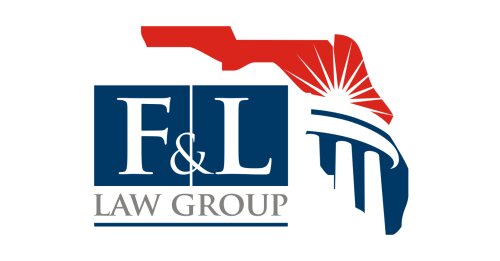Best ADR Mediation & Arbitration Lawyers in Florida
Share your needs with us, get contacted by law firms.
Free. Takes 2 min.
Or refine your search by selecting a city:
List of the best lawyers in Florida, United States
About ADR Mediation & Arbitration Law in Florida, United States
Alternative Dispute Resolution (ADR) refers to methods of resolving conflicts outside of traditional court proceedings. In Florida, two of the most common ADR processes are mediation and arbitration. Mediation is a voluntary process where a neutral third-party, called a mediator, helps disputing parties negotiate a mutually agreeable solution. Arbitration involves presenting the dispute to an impartial arbitrator or panel, who then makes a binding or non-binding decision. These methods offer a more private, efficient, and often cost-effective means of resolving disputes, ranging from family matters to business and civil disputes.
Why You May Need a Lawyer
While ADR processes in Florida are designed to be informal, there are several situations where having a lawyer is crucial:
- If your dispute involves significant legal rights, property, or financial interests.
- When negotiating complex settlements or interpreting legal language in agreements.
- If you need to ensure the enforceability of an arbitration award or mediated agreement.
- When preparing for arbitration, where rules of evidence may apply and formal presentation is required.
- If you have concerns about impartiality, bias, or fairness in the ADR process.
- When a court orders mediation or arbitration as part of a lawsuit or other legal process.
- For cross-border or out-of-state disputes, which may require knowledge of specific laws and procedures.
- If you need representation during ADR sessions to advocate for your interests.
Local Laws Overview
Florida has a robust legal framework governing mediation and arbitration. The state has adopted the Florida Mediation Code and the Revised Florida Arbitration Code to regulate these processes. Key aspects include:
- Mediation: Many civil, family, and small claims cases in Florida are required by courts to attempt mediation before proceeding to trial. Mediators in court-connected cases are typically certified by the Florida Supreme Court. The process is confidential, and anything said during mediation generally cannot be used as evidence in court.
- Arbitration: Arbitration can be voluntary (by agreement) or mandatory (by court order or statute). Florida law recognizes both binding and non-binding arbitration. In binding arbitration, the arbitrator’s decision is final, subject to limited judicial review. Non-binding awards can be rejected, allowing the case to proceed to trial.
- Enforceability: Both mediated settlement agreements and arbitration awards can be filed in court to become enforceable as judgments.
- Confidentiality: Both mediation and arbitration offer greater privacy compared to open court trials, and Florida statutes provide strict confidentiality protections.
- Selection of Neutral Parties: Parties in Florida typically select mediators or arbitrators together, or have them appointed by a court if no agreement is reached.
Frequently Asked Questions
What types of disputes can be resolved through ADR in Florida?
ADR can be used for a wide range of disputes, including business, family, employment, real estate, construction, contract, and consumer issues.
Is mediation required before going to trial in Florida courts?
Many Florida courts require parties to attempt mediation before a trial in civil, small claims, and family law cases. Requirements may vary by court and by the type of case.
What is the difference between mediation and arbitration?
Mediation involves a neutral facilitator who helps parties settle voluntarily, while arbitration involves an arbitrator who listens to the sides and makes a binding or non-binding decision.
Is the mediation process confidential in Florida?
Yes, Florida law ensures that mediation sessions are confidential and that most statements made during mediation cannot be used in court.
Who pays for mediation or arbitration services?
The parties usually share the costs, but sometimes one party may pay, or courts may offer reduced-cost programs for certain cases.
Can I bring my lawyer to mediation or arbitration?
Yes, you have the right to be represented by a lawyer during both mediation and arbitration.
Are arbitration awards enforceable in court?
Yes, binding arbitration awards can be confirmed and enforced by Florida courts unless specific grounds for challenge are present.
How do I find a qualified mediator or arbitrator in Florida?
Many mediators and arbitrators are certified by the Florida Supreme Court. Courts and professional organizations maintain directories to help parties find qualified ADR professionals.
What happens if mediation does not result in an agreement?
If the parties cannot reach an agreement, they are free to pursue other options, such as going to trial or engaging in arbitration.
Do I have to accept an arbitration decision?
If the arbitration is binding, the decision typically must be accepted, though limited grounds for appeal exist. In non-binding arbitration, parties can reject the award and go to trial.
Additional Resources
Individuals seeking more information or assistance with ADR mediation and arbitration in Florida may find these organizations helpful:
- Florida Supreme Court Dispute Resolution Center - Oversees mediator certification and court-connected ADR programs.
- Florida Bar Association - Provides lawyer referral services and resources on ADR.
- County Courts and Local Clerk of Courts - Many maintain ADR programs and provide information on local requirements.
- American Arbitration Association and similar professional organizations - Offer lists of qualified arbitrators and mediators in Florida.
Next Steps
If you think ADR could be the right solution for your dispute in Florida, consider the following steps:
- Identify the nature of your conflict and consider whether mediation, arbitration, or another form of ADR is most suitable.
- Consult with a qualified Florida lawyer experienced in ADR to evaluate your rights and options before beginning the process.
- Determine whether your case is subject to mandatory ADR according to local court rules or existing contracts.
- Work with your lawyer to select a certified mediator or arbitrator with expertise in your type of dispute.
- Prepare for the ADR session by gathering relevant documents, outlining your goals, and considering possible settlement options.
- Participate in mediation or arbitration with the support of your lawyer to best protect your interests.
- Review any proposed agreement carefully before signing, and ask your lawyer about enforceability and next steps.
ADR processes in Florida are designed to make dispute resolution more accessible and efficient. Legal guidance helps safeguard your interests and ensures the process is handled properly, so consider seeking professional legal advice if you are involved in mediation or arbitration.
Lawzana helps you find the best lawyers and law firms in Florida through a curated and pre-screened list of qualified legal professionals. Our platform offers rankings and detailed profiles of attorneys and law firms, allowing you to compare based on practice areas, including ADR Mediation & Arbitration , experience, and client feedback.
Each profile includes a description of the firm's areas of practice, client reviews, team members and partners, year of establishment, spoken languages, office locations, contact information, social media presence, and any published articles or resources. Most firms on our platform speak English and are experienced in both local and international legal matters.
Get a quote from top-rated law firms in Florida, United States — quickly, securely, and without unnecessary hassle.
Disclaimer:
The information provided on this page is for general informational purposes only and does not constitute legal advice. While we strive to ensure the accuracy and relevance of the content, legal information may change over time, and interpretations of the law can vary. You should always consult with a qualified legal professional for advice specific to your situation.
We disclaim all liability for actions taken or not taken based on the content of this page. If you believe any information is incorrect or outdated, please contact us, and we will review and update it where appropriate.
Browse adr mediation & arbitration law firms by city in Florida
Refine your search by selecting a city.















